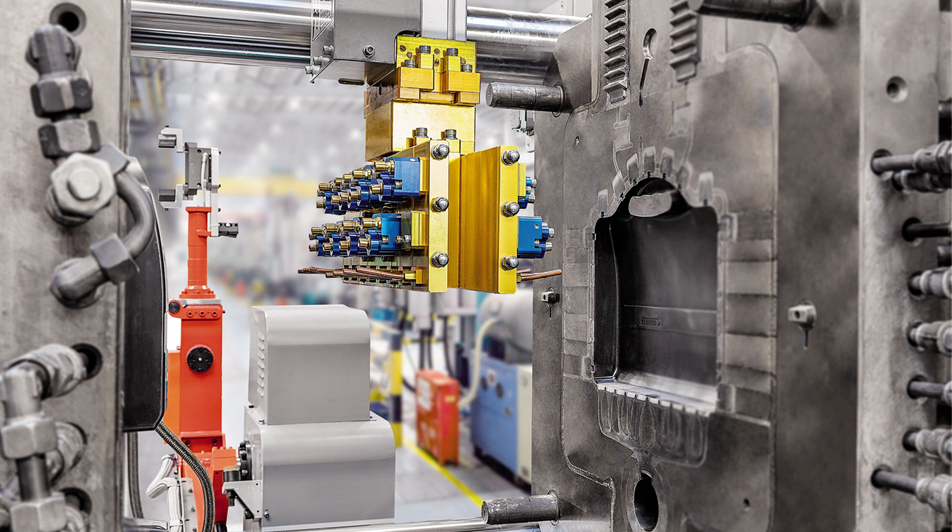Die casting is a metal casting process that is widely used in the manufacturing industry to create complex, high-precision metal parts. The process involves forcing molten metal into a mold cavity under high pressure, which solidifies into the desired shape as it cools. Die casting is often used to create parts that require a high degree of dimensional accuracy, as well as those with intricate shapes and surface textures.
One of the main advantages of die casting is that it allows for the production of large quantities of parts with consistent quality and dimensional accuracy. The process is also highly efficient, with the ability to produce parts at a fast rate. Additionally, die casting allows for the creation of parts with thin walls and complex geometries that would be difficult or impossible to achieve with other manufacturing methods.
The die casting process typically involves the following steps:
1. Mold preparation: The mold, also known as the die, is first prepared by machining it to the desired shape and size. This may involve CNC machining, EDM (electrical discharge machining), or other methods.
2. Molten metal preparation: The metal to be used for casting is melted in a furnace, and any necessary alloying elements are added to achieve the desired properties.
3. Injection: The molten metal is then injected into the mold cavity under high pressure using a machine called a die casting machine. The pressure helps to ensure that the metal fills the mold completely and evenly, and also helps to prevent defects such as porosity.
4. Cooling and ejection: Once the metal has solidified, the mold is opened and the part is ejected. The part is then trimmed and any post-casting processes such as machining or surface finishing are performed.
There are several different types of die casting processes, including:
1. Cold chamber die casting: This process involves injecting molten metal into a cold chamber, where it is then transferred to the mold cavity under high pressure.
2. Hot chamber die casting: In this process, the metal is melted in the casting machine itself, and then injected into the mold cavity under high pressure.
3. Vacuum die casting: This process involves using a vacuum to remove air from the mold cavity before injecting the molten metal, which helps to prevent defects such as porosity.

Some of the main advantages of die casting include:
1. High dimensional accuracy: Die casting allows for the production of parts with very tight tolerances and consistent dimensions.
2. High production efficiency: Die casting is a fast and efficient process that can produce large quantities of parts at a relatively low cost.
3. Wide range of materials: Die casting can be used with a wide range of metals, including aluminum, zinc, magnesium, and copper alloys.
4. Complex geometries: Die casting allows for the creation of parts with complex shapes and surface textures that would be difficult or impossible to achieve with other manufacturing methods.
In conclusion, die casting is an important manufacturing process that offers a range of advantages for the production of complex, high-precision metal parts. Whether you are producing parts for the automotive, aerospace, or consumer electronics industries, die casting can help you achieve the quality, efficiency, and precision that you need to succeed in today\’s competitive marketplace.
-

- Magnesium alloy die-casting Auto parts Side step Running board
-

- Ofurléttur fjöðrunargaffli fyrir MTB
-

- Magnesíumblendi Thixomolding hlutar fyrir súrefnissog vélarhús
-

- Custom-made thixomolding parts UAV components with CNC machining &surface treatment
-

- Magnesíum steypuhlutar Stýrisstöng
-

- Magnesíum álfelgur deyja-steypu Bílavarahlutir RDM húsnæði

 0086-750-5616188
0086-750-5616188 +86 13392089688
+86 13392089688 sales@zhongmei-tech.com
sales@zhongmei-tech.com







